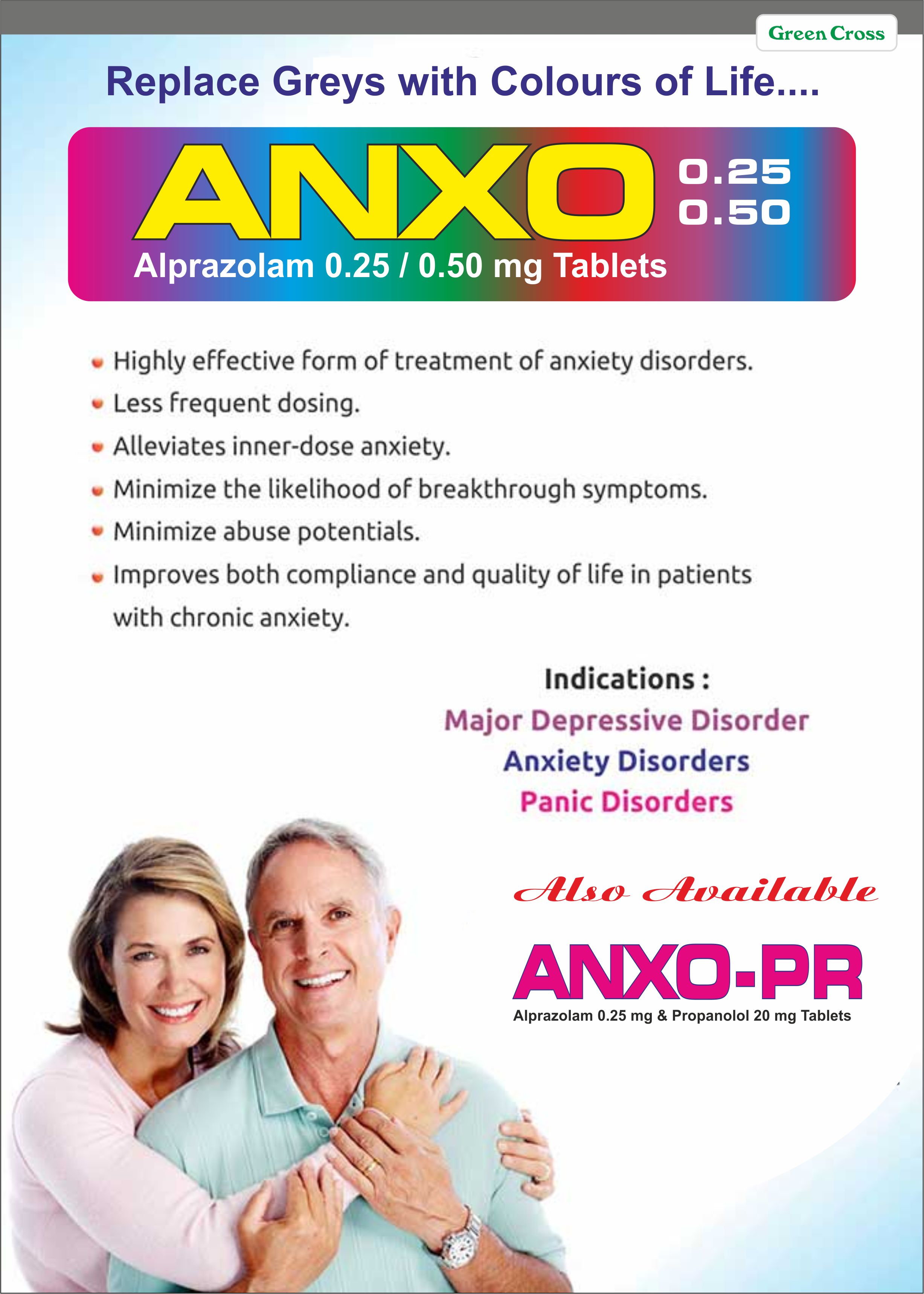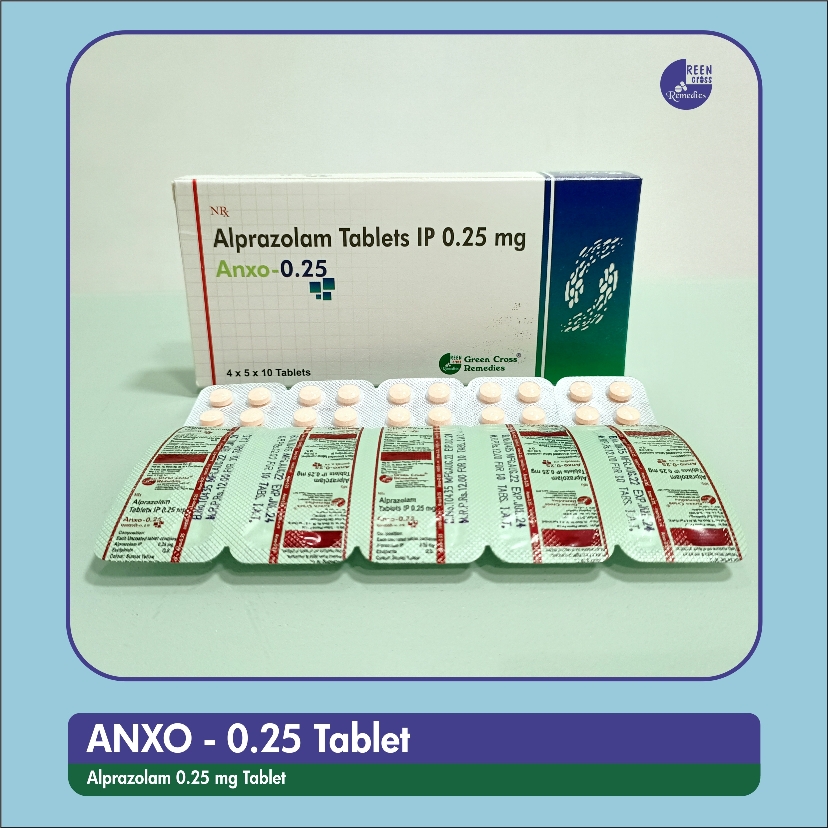ANXO - 0.25 Tablet
Alprazolam 0.25 mg Tablet Use, Indication, Side Effects, Dosage, Mechanism of Action, Price, Contra-Indications, Drug Interactions As Description|MRP: 12.00 (10 Tablet)
Inquiry Now
Alprazolam 0.25 mg Tablet Use, Indication, Side Effects, Dosage, Mechanism of Action, Price, Contra-Indications, Drug Interactions,,,,,
ANXO-0.25 Tablet
Composition:
Each Uncoated Tablet contains:
Alprazolam I.P 0.25 mg
ANXO-0.25 Tablet contains Alprazolam as the active ingredient, which is commonly prescribed for the treatment of anxiety and panic disorders.
Use and Indication:
ANXO-0.25 Tablet (Alprazolam 0.25 mg) is typically used to treat the following conditions:
-
Anxiety Disorders: Generalized anxiety disorder (GAD) or anxiety related to stressful events.
-
Panic Disorder: With or without agoraphobia (fear of certain places).
-
Short-term Relief of severe anxiety or stress.
Dosage:
The typical starting dose for adults is 0.25 to 0.5 mg, taken 2 to 3 times per day. Your doctor may adjust the dosage based on your response to the medication. The maximum daily dose should not exceed 4 mg.
For older adults or those with liver or kidney issues, a lower starting dose is often recommended to prevent overdose and side effects.
Mechanism of Action:
Alprazolam belongs to a class of medications known as benzodiazepines. It works by enhancing the activity of gamma-aminobutyric acid (GABA), a neurotransmitter that inhibits brain activity. This results in a calming effect on the nervous system, helping to reduce anxiety and panic symptoms.
Side Effects:
Some common side effects include:
-
Drowsiness
-
Dizziness
-
Fatigue
-
Memory impairment
-
Dry mouth
-
Changes in appetite
-
Difficulty concentrating
Serious side effects can include:
-
Respiratory depression (slow or difficult breathing)
-
Confusion
-
Hallucinations
-
Suicidal thoughts (especially in people with mood disorders)
-
Seizures (in case of overdose or abrupt withdrawal)
If you experience any severe side effects, it is important to seek immediate medical attention.
Contra-Indications:
ANXO-0.25 (Alprazolam) should not be used in the following situations:
-
Hypersensitivity to Alprazolam or other benzodiazepines.
-
Severe respiratory issues like severe chronic obstructive pulmonary disease (COPD) or sleep apnea.
-
Acute narrow-angle glaucoma.
-
Pregnancy: Alprazolam should be avoided during pregnancy unless absolutely necessary, as it can harm the fetus.
-
Breastfeeding: Alprazolam passes into breast milk and may harm the infant.
-
Severe liver disease (like cirrhosis).
Drug Interactions:
Alprazolam can interact with several other medications, leading to increased side effects or decreased effectiveness. Key interactions include:
-
CNS depressants: Such as alcohol, opioids, and other sedatives. This can lead to severe sedation, respiratory depression, or coma.
-
Antidepressants (SSRIs, SNRIs): They may increase the sedative effects of Alprazolam.
-
Antifungals: Medications like ketoconazole may increase Alprazolam levels in the blood.
-
Anticonvulsants (e.g., phenytoin): These may affect the metabolism of Alprazolam.
-
Grapefruit: It can increase the levels of Alprazolam in the blood, leading to enhanced effects and potential overdose.
For Use of registered medical practitioner or a hospital only

